Five words to describe each team's Tour de France performance
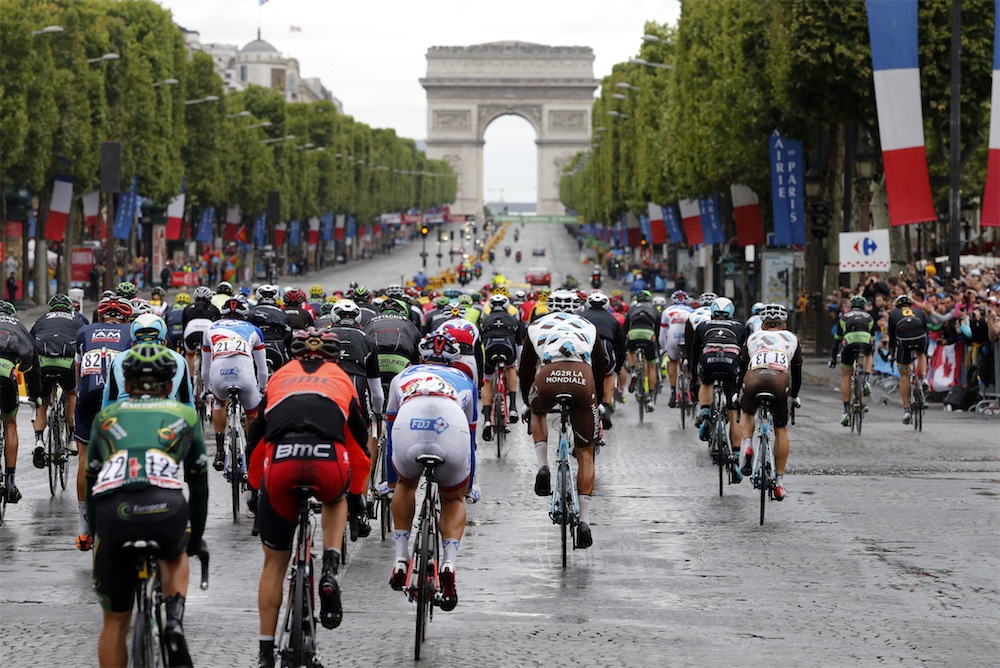
26 July 2015
102nd Tour de France
Stage 21 : Sevres - Paris Champs-Elysees
Peloton at Arc de Triomphe
Photo : Yuzuru SUNADA
The latest race content, interviews, features, reviews and expert buying guides, direct to your inbox!
You are now subscribed
Your newsletter sign-up was successful
The dust has almost settled after the 2015 Tour de France and teams will be beginning to evaluate their performances. Sponsors can stay or leave based on the performances of their teams over these three weeks, so who impressed the most and who left a lot to be desired?
Here we look at each of the 22 teams to race in France and sum up their Tour in five handy words.
Astana - Early struggles led to confusion
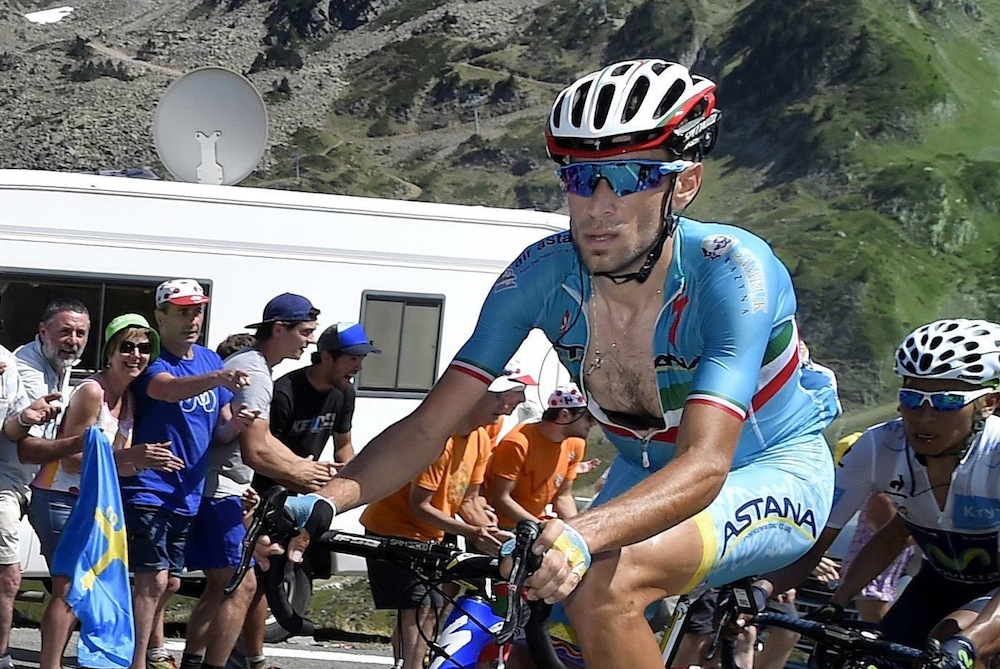
When Vincenzo Nibali cracked at the first sign of mountains in the Pyrenees, team manager Alexander Vinokourov promptly handed leadership to Jakob Fuglsang.
Fuglsang then promptly folded under the pressure himself, finishing 10 minutes behind his Italian teammate the following day, leaving Vino to insist he never took the leadership away from Nibali.
The overall title was well out of reach by the time the Tour reached the Alps, allowing Nibali to streak away for a stage win on La Toussuire.
Ag2r-La Mondiale - Stage wins remedy poor start
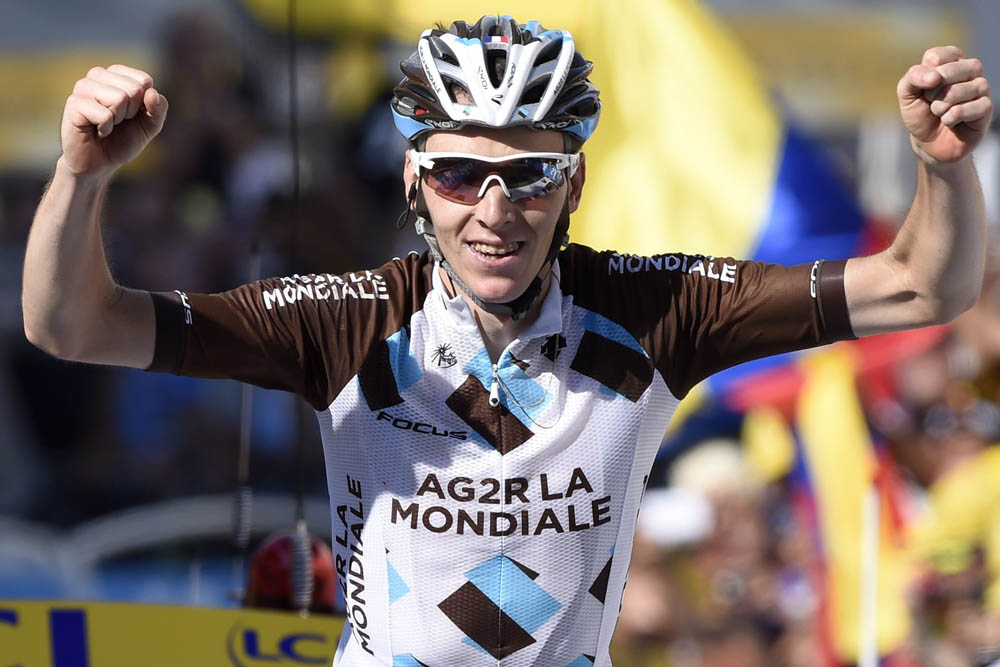
Ag2r's best placed rider after a windy stage two was Jean-Christophe Peraud in 41st position, 2:25 down on leader Fabian Cancellara.
While this wasn't an unsurmountable time gap, Ag2r's classification riders struggled to get back into contention in the first week, with a stage win for Alexis Vuillermoz on the Mur de Bretagne provided a little respite.
The latest race content, interviews, features, reviews and expert buying guides, direct to your inbox!
Romain Bardet recovered from a poor start to hover around the top 10, finally breaking in after an impressive win on stage 18 to Saint-Jean-de-Maurienne.
It was a good job Bardet won, though, otherwise his Tour will have been remembered for being beaten by Steve Cummings when victory looked within reach on stage 14.
BMC - Great Tour until Tejay abandoned
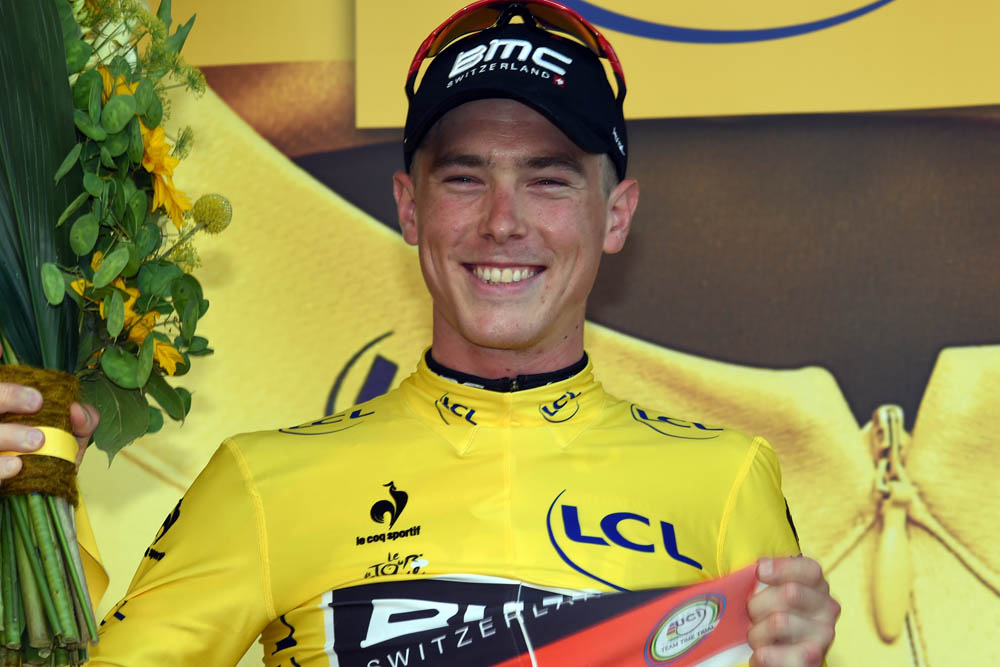
Two individual stage wins, victory in the team time trial and Tejay van Garderen sitting third in the general classification - all was looking great for BMC at the start of stage 16.
Then Tejay succumbed to a virus that he'd been dealing with for a few days; reluctantly climbing into the team car after being dropped almost from the off.
Rohan Dennis got them off to a great start by unexpectedly taking the first yellow jersey in Utrecht, then they pipped Team Sky to the TTT win by just one second. Greg Van Avermaet celebrated the upcoming birth of his first child with a win in Rodez before departing the race.
Cannondale-Garmin - Active but leave empty handed
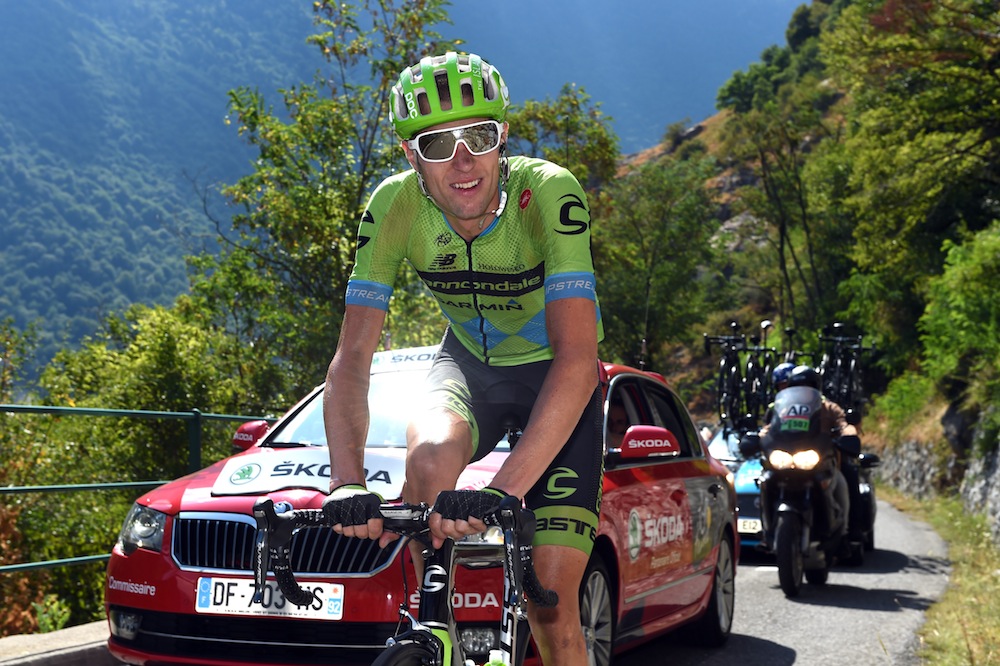
Try as they might, Cannondale-Garmin came away from the Tour with no wins to their credit.
Dan Martin had two second place finishes on stages eight and 11, while Andrew Talansky was runner up on stage 17. Martin also had a fourth on stage three up the Mur de Huy and Ryder Hesjedal put in a phenomenal ride to finish third on Alpe d'Huez.
But the win just wouldn't come.
Etixx-Quick-Step - High highs and low lows
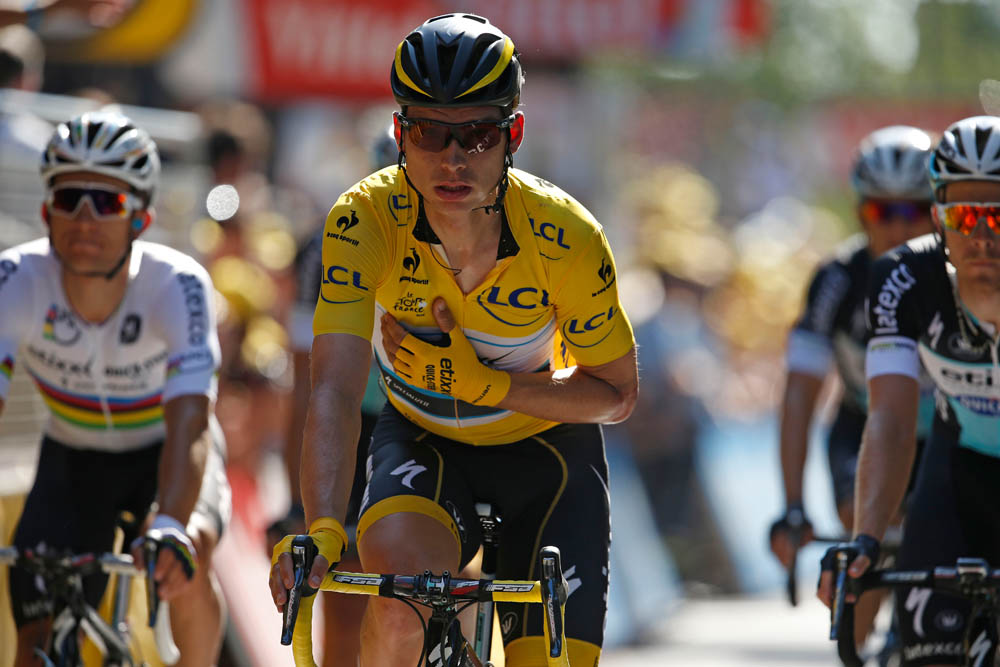
What a first week Etixx-Quick-Step had. Tony Martin smashed the opening time trial but could only finish second to Dennis. Then Mark Cavendish's fourth place on stage two only narrowly stopped Martin from taking the yellow jersey.
Martin got his reward on stage four, though, with a great breakaway win after negotiating the cobbles, only to fall off and break his collarbone on stage six, forcing him to abandon the race and relinquish the jersey.
While Martin was on the floor, though, Zdenek Stybar broke away for the stage win and Cavendish followed it up the following day with his only win.
After that the Belgian team went a bit quiet, with Michal Kwiatkowski and Mark Renshaw leaving early, Cav suffered from illness and wasn't in contention for either of the sprints on stages 15 or 21.
FDJ - Terrible Tour rescued on Alpe
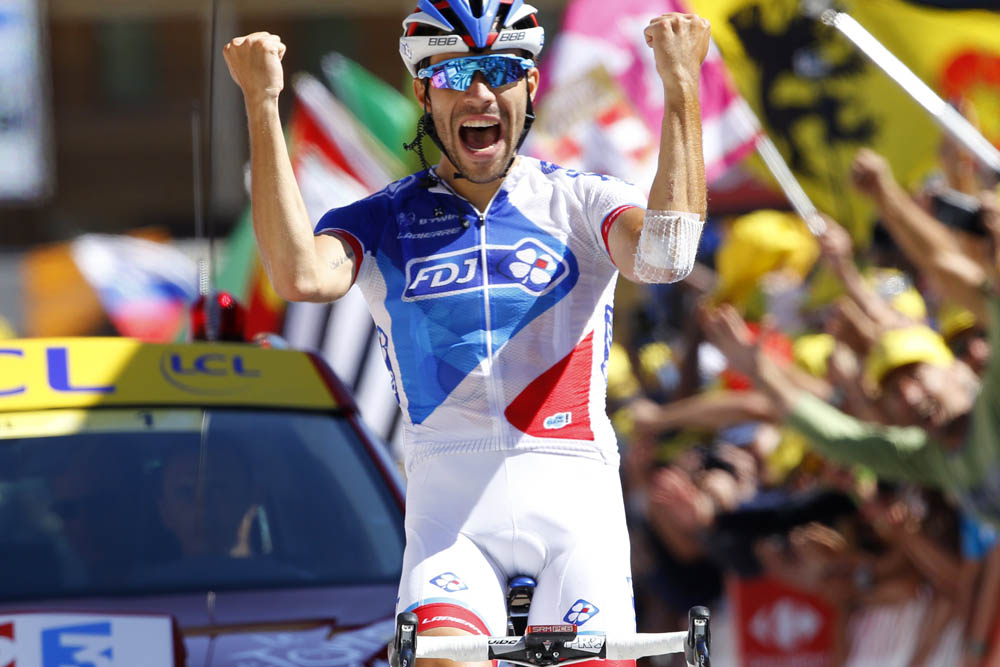
Week one of the Tour was reserved for seeing just how much time Thibaut Pinot would give up. By stage nine last year's bronze medallist was already eight minutes down after horrendous luck and a little bit of a tantrum on stages three and four.
Like Bardet, his chances of winning were over, and like Bardet his Tour was almost defined by not winning in Mende. Then he pulled off one of the race's best performances by winning on Alpe d'Huez and saving a little bit of face.
Giant-Alpecin - Without Kittel, Giant looked weak
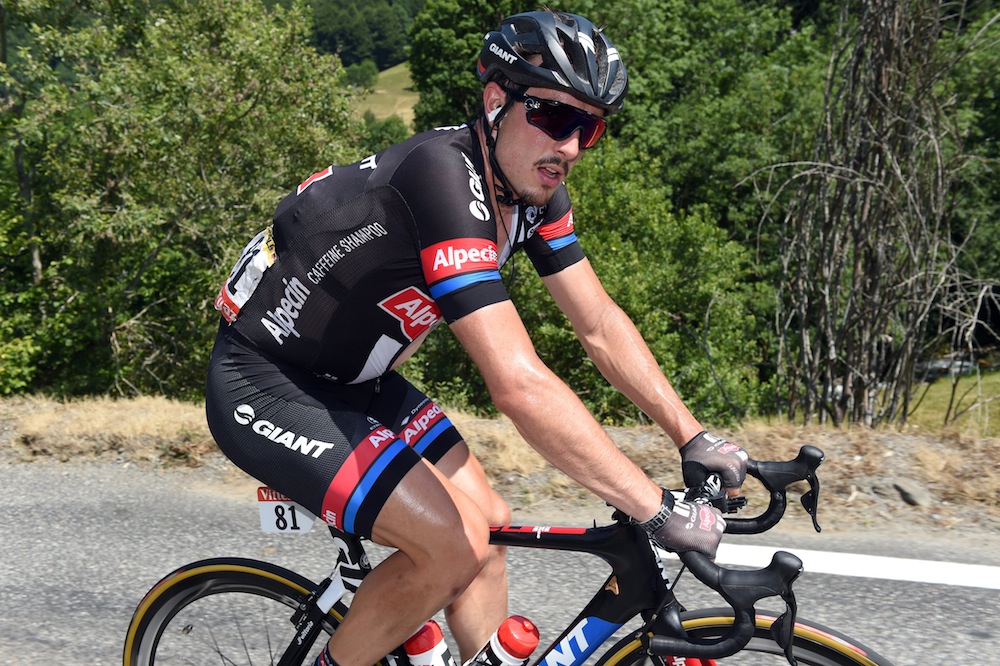
John Degenkolb tried, but he just couldn't find a way to win. Two seconds and three fourths were as good as it got for the German on terrain that suited his skillset.
Marcel Kittel wasn't fit enough for selection, and not many stages were set up for a sprinter of his ilk, but Giant looked as if they missed the eight-time stage winner.
Tom Dumoulin couldn't win the opening time trial on the first day and then crashed out of the race on stage three, meaning the team's chances of success were significantly dented.
Simon Geschke did take an emotional win on stage 17 to salvage the Tour for the German team.
IAM Cycling - Great result for Matthias Frank
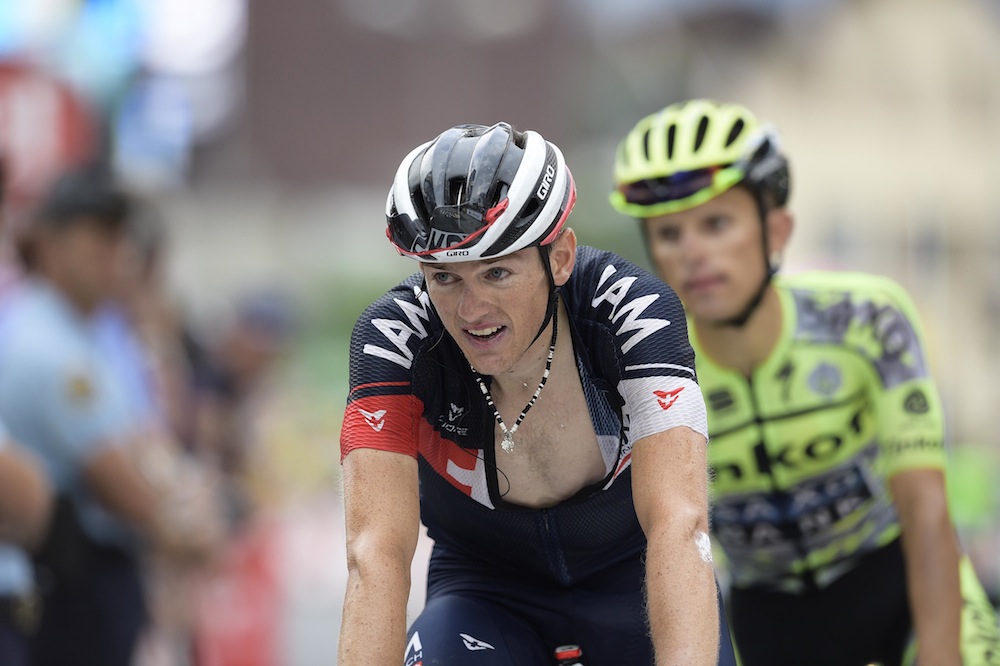
It was an odd Tour for IAM Cycling in their first year as a WorldTour team. Other than the team time trial, where they finished sixth, the nine man team only mustered three top-10 finishes between them.
But at the same time Matthias Frank finished eighth overall, so it will probably go down as a good Tour for the Swiss team.
Jarlinson Pantano shone on stage 16 to gap, coming in third after trying to follow Peter Sagan down the Col de Manse and Matthias Brandle finished seventh on the opening time trial. Other than that, not much.
Katusha - Kristoff poor, Paolini caught out
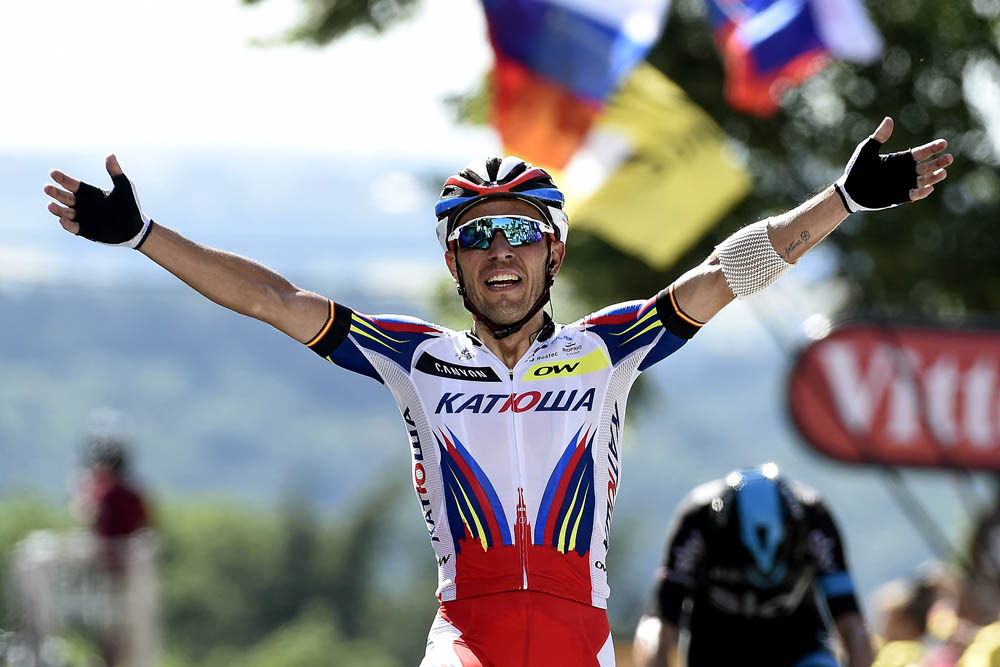
Coming into the Tour with the winningest rider of 2015, as the Americans would say, Katusha failed spectacularly to deliver Alexander Kristoff to the line this Tour.
He missed the split in the peloton on stage two, finished fourth on stage five, fifth on stage seven, third on stage 16 and third again in Paris - not at the high standard he set in the spring.
Joaquim Rodriguez did his usual trick of looking good in the GC until one terrible stage knocked him out of contention, but he did win two stages and earned himself a new contract.
Then there's Luca Paolini, who suffered a blow when he was caught for taking blow - the Tour's only positive drugs test.
Lampre-Merida - Stage win but largely invisible
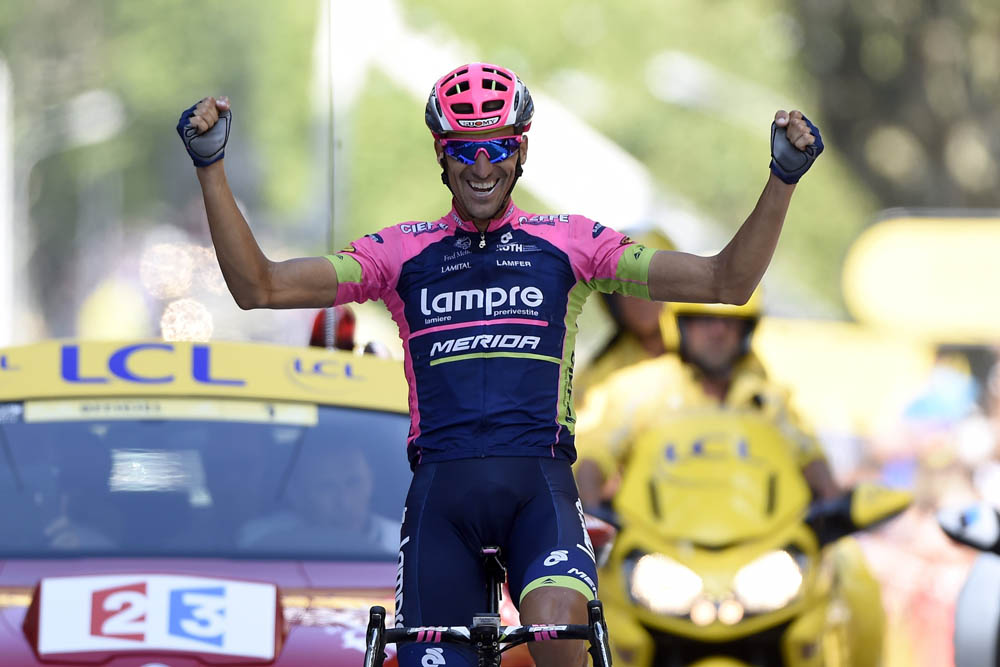
If Ruben Plaza hadn't won stage 16, Lampre-Merida's Tour would have been an unmitigated disaster.
Davide Cimolai did finish in the top 10 on four occasions, but was never anywhere near close to winning the stage, while Plaza followed up his impressive win with two more decent performances up La Toussuire and Alpe d'Huez.
But apart from that, they did next to nothing of note over the three weeks, which was a shame.
LottoNL-Jumbo - Gesink back to his best
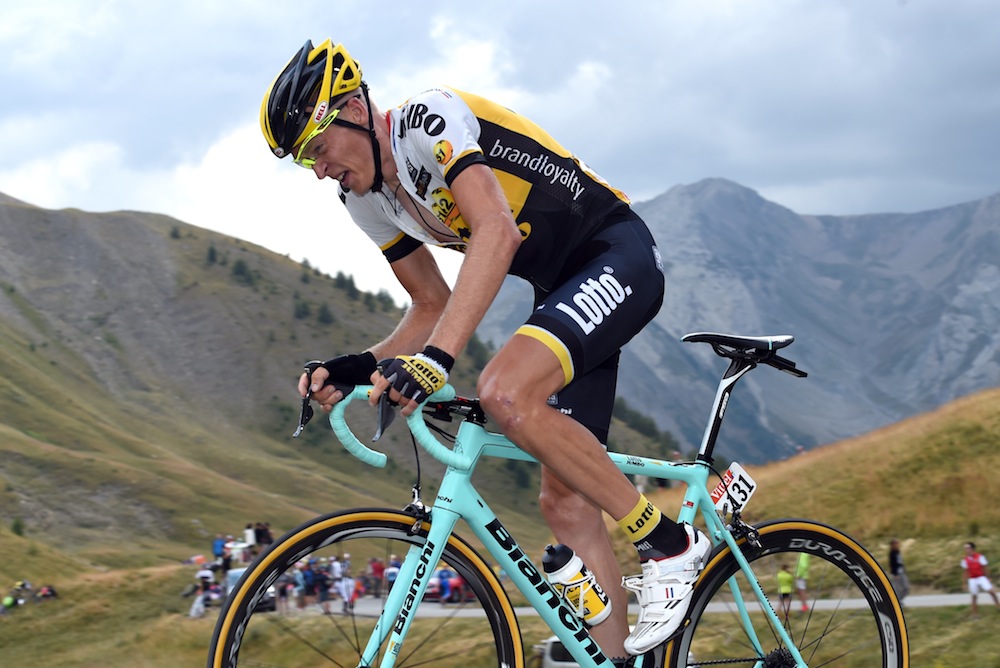
After a troubling year in 2014, when he underwent surgery for an irregular heart beat, Robert Gesink proved his talents over the course of the three weeks in France, finishing seventh overall.
The Dutchman was a near constant presence near the front of the race in the mountains, out-duelling some of the best climbers in the world in the process. The consistency lacked a bit, but the signs are good for the 29-year-old in years to come.
Lotto-Soudal - Greipel best sprinter in race
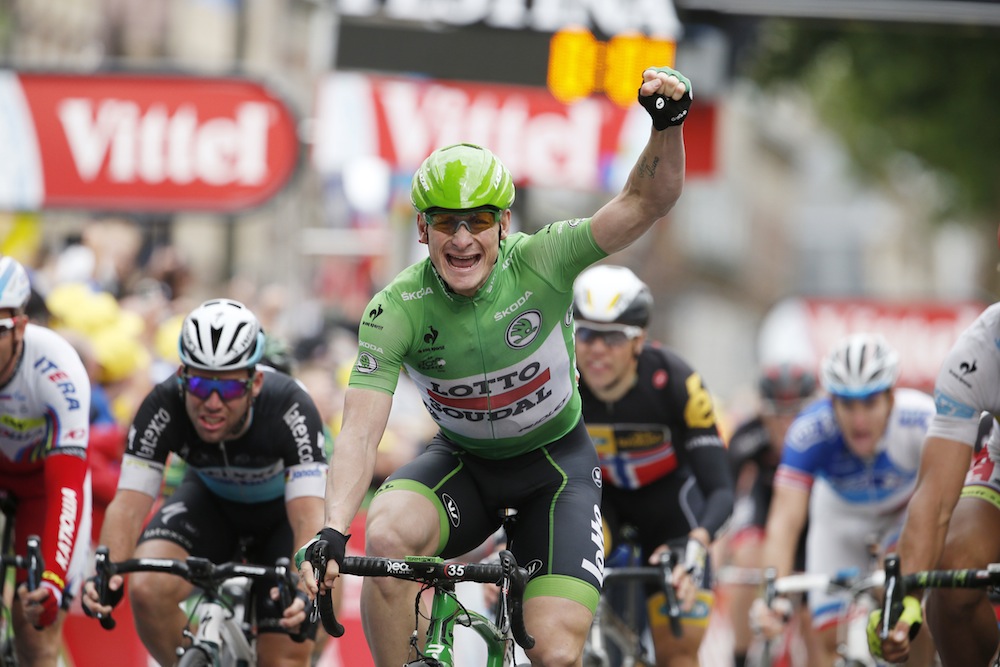
We know that Andre Greipel is strong, but few of us would have predicted that he'd win four stages in a Tour that didn't really cater for sprinters.
Time and time again the massive German proved that he was by far and away the fastest man in the race, especially when he rocketed past Kristoff and Arnaud Demare on stage five in Amiens.
He's now won a stage at the Tour every year since 2011, and who would bet against him continuing this trend in 2016 at the ripe old age of 34.
Movistar - Dual threat nearly makes miracle
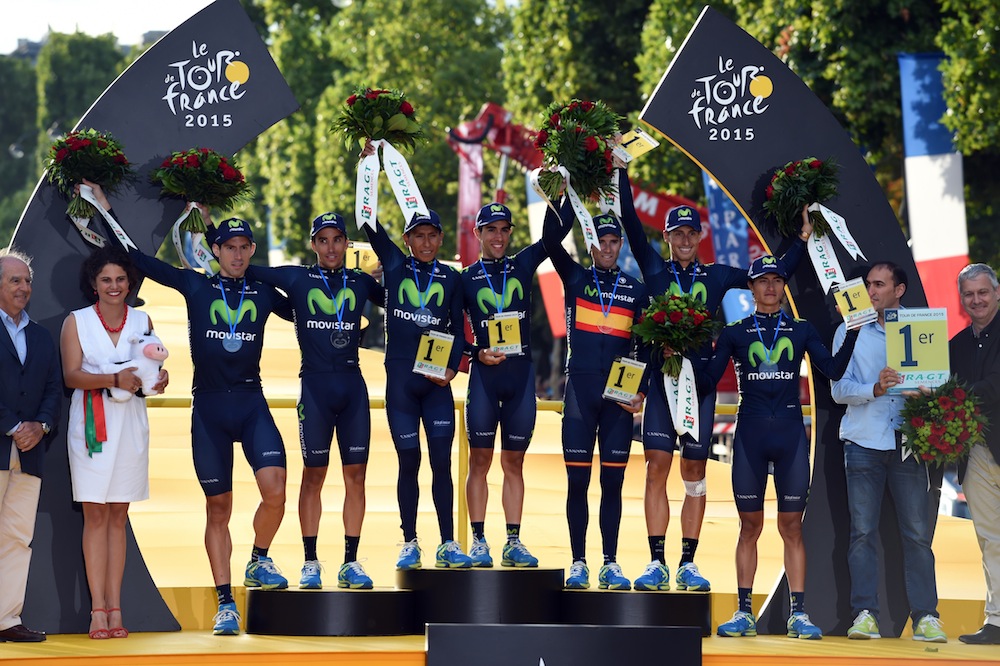
Like Wiggins and Froome in 2012, Movistar entered the Tour with two possible winners - Nairo Quintana and Alejandro Valverde.
The Spaniard, Valverde, is not particularly well known for his love of working for a teammate, but he provided a near perfect service to Quintana the whole time.
This particularly came to light in the Alps when Valverde would ramp up the pace with attacks in an attempt to leave Froome isolated, which Quintana then took advantage of. Had Froome not been so strong, these two could have easily been on the top two steps of the podium.
Unfortunately for Valverde, team manager Eusebio Unzue is keen to use the double act again, meaning he may have to play super domestique again at the Vuelta a España.
Orica-GreenEdge - Injuries blight great young team
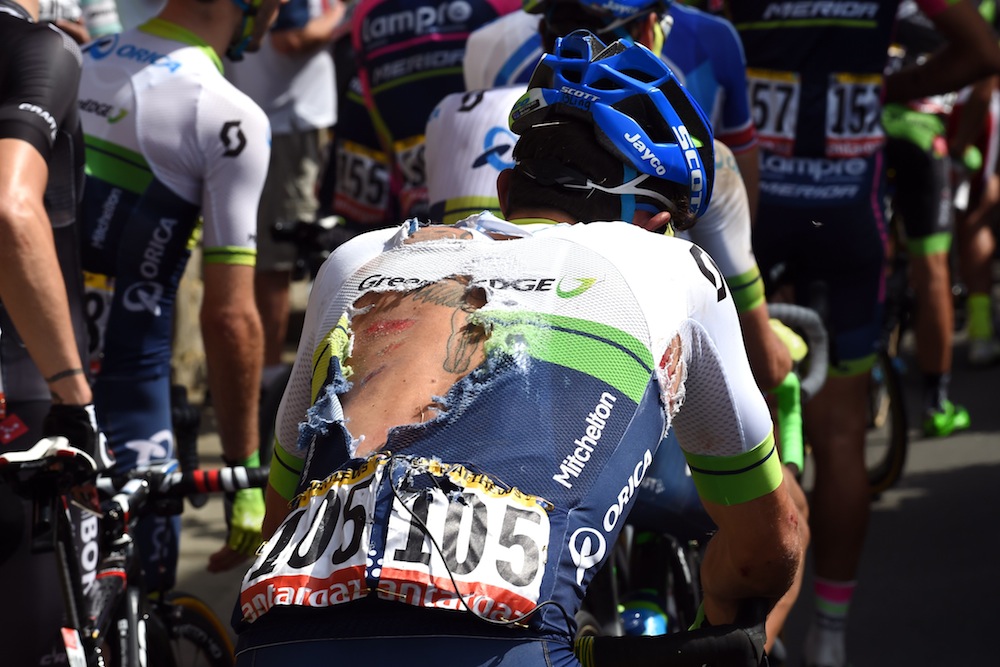
The first week is where Orica usually excel in Grand Tours. A good result early doors often leaves one of their riders in the leader's jersey and they keep it for a few stages.
This year, though, their first week couldn't have gone worse. The huge crash on stage three left them three riders short come the team time trial on stage nine.
Orica usually dominate these events, but this time they were forced to use it more as a training ride as they guided a seriously injured Michael Matthews to the finish in time.
The Australian team had a presence in the mountains for a change as well this year as Simon and Adam Yates showed their huge potential on the high climbs mixing it with the big boys.
Team Sky - Great teamwork wins another Tour
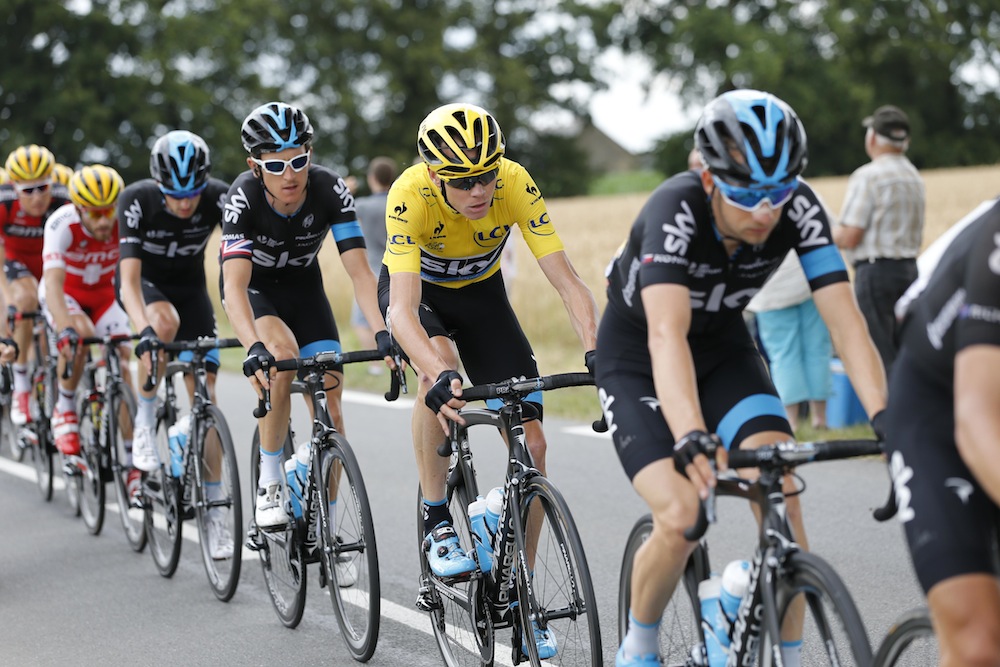
People call it boring, but there's no doubting that it works. Team Sky's tactic of taking yellow early and defending it to Paris worked pretty much perfectly again this year.
Rarely was Froome left isolated on any of the climbs, and when he was he was strong enough to keep up with any attacks.
Quintana almost stole the show on Alpe d'Huez, but Wout Poels and Richie Porte rode out of their skin to guide their man to the win.
Tinkoff-Saxo - Sagan great, Contador falls short
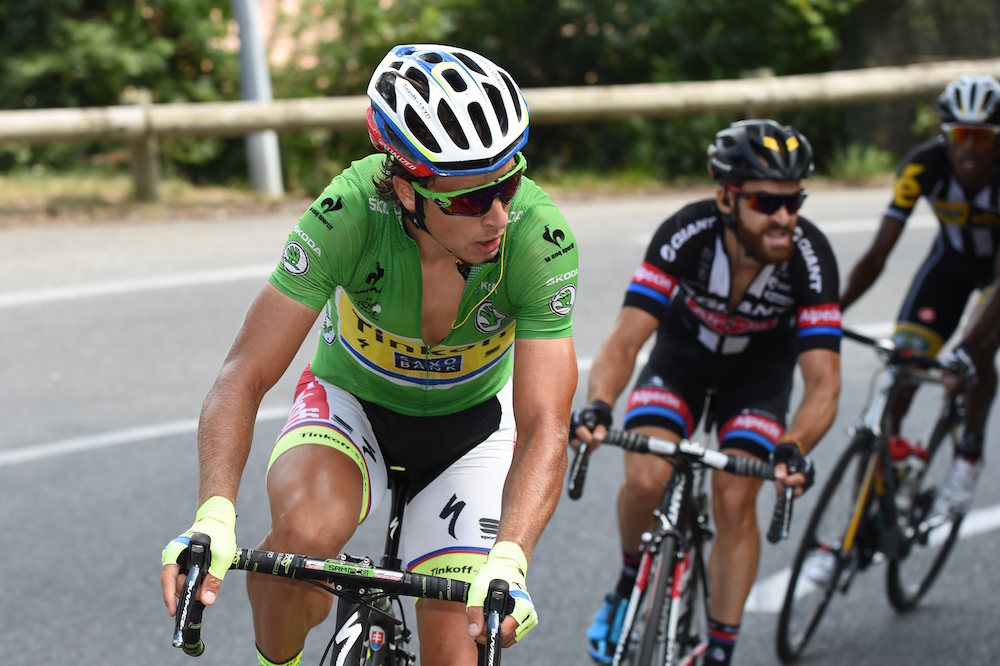
Despite failing to win a stage, Peter Sagan was arguably the strongest rider at the Tour de France - and Oleg Tinkov would agree.
Rarely do we see a rider dominating so many different terrains, but Sagan proved his quality on the flat, the hills, the mountains, the descents and the cobbles over the course of the three weeks.
A phenomenal 11 top-10 finishes in 21 stages was Sagan's final tally, resulting in his fourth successive green jersey.
Tinkoff did win a stage through Rafal Majka on the climb to Cauterets, while Contador was clearly still tired from his Giro d'Italia win. Still, fifth overall is nothing to be sneezed at - the same he managed the last time he attempted the Giro/Tour double.
Trek Factory Racing - Largely anonymous after Cancellara exit
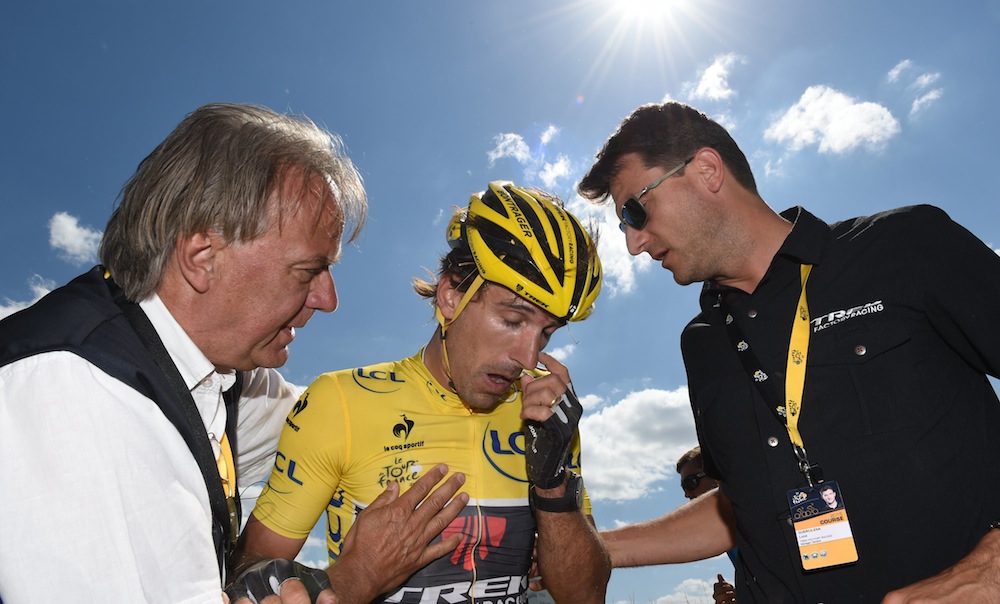
Like IAM Cycling, Trek pretty much went under the radar as they placed Bauke Mollema (or Malcolm Bollema, as he was called by one TV commentator) in seventh place.
Fabian Cancellara started the Tour so well for the team, taking the yellow jersey for the 27th time in his career on stage two but was involved in the crash on stage three and was forced to retire at the end of the stage.
Not much more to say about them, really.
Bora-Argon 18 - Positive signs for German team
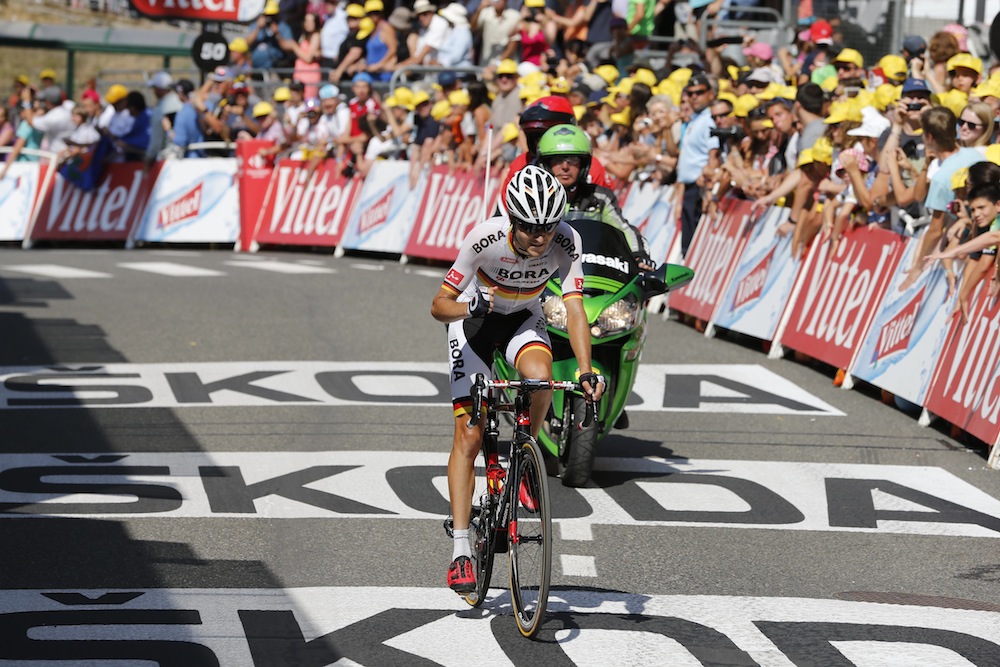
For wildcard teams it's not so much about the results but the performances and Bora-Argon 18 definitely did their cause no harm. Sprinter Sam Bennett was highly touted but couldn't find himself in contention for the sprints before falling ill.
But German champion Emmanuel Buchmann - the only neo-pro in the race - rode superbly to finish third on stage 11 to Cauterets. Throw in Jan Barta, who attacked relentlessly, and you've got a good little Tour.
Bretagne-Séché Environnement - Active in breakaways, as expected
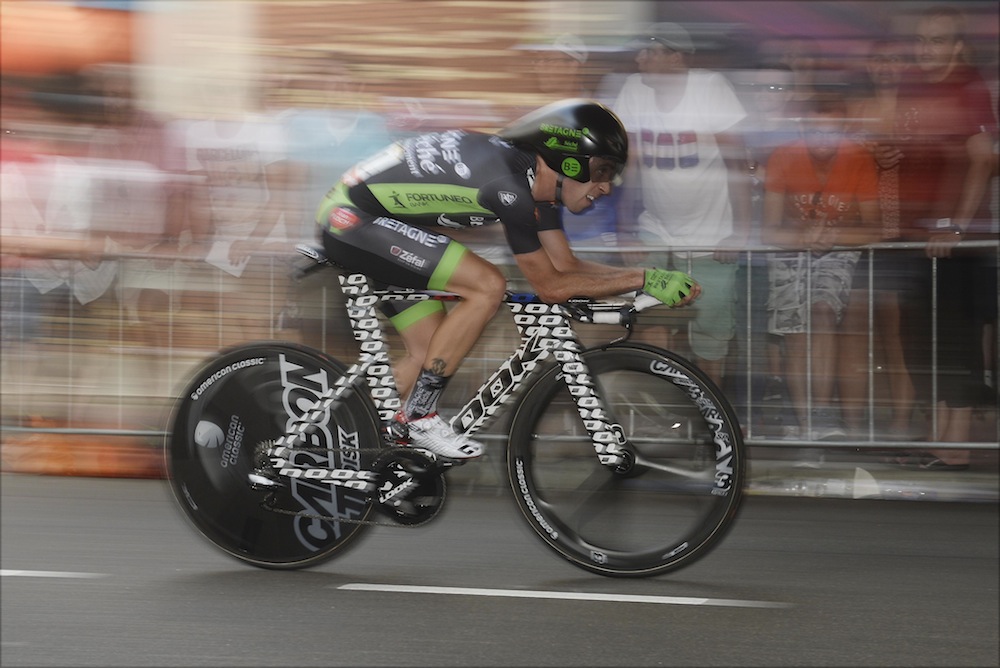
For a team like Bretagne the Tour is all about exposure, which is why they got a man in pretty much every breakaway. They got their sponsors' names on TV with their bike riding and leader Eduardo Sepulveda created headlines of a different kind.
On stage 14 he found himself unable to walk up a steep climb in his cleats when his bike broke, so he hitched a lift in an Ag2r car for 100m to get to his own car. The race jury kicked him off the race.
Cofidis - Without Bouhanni they have nothing
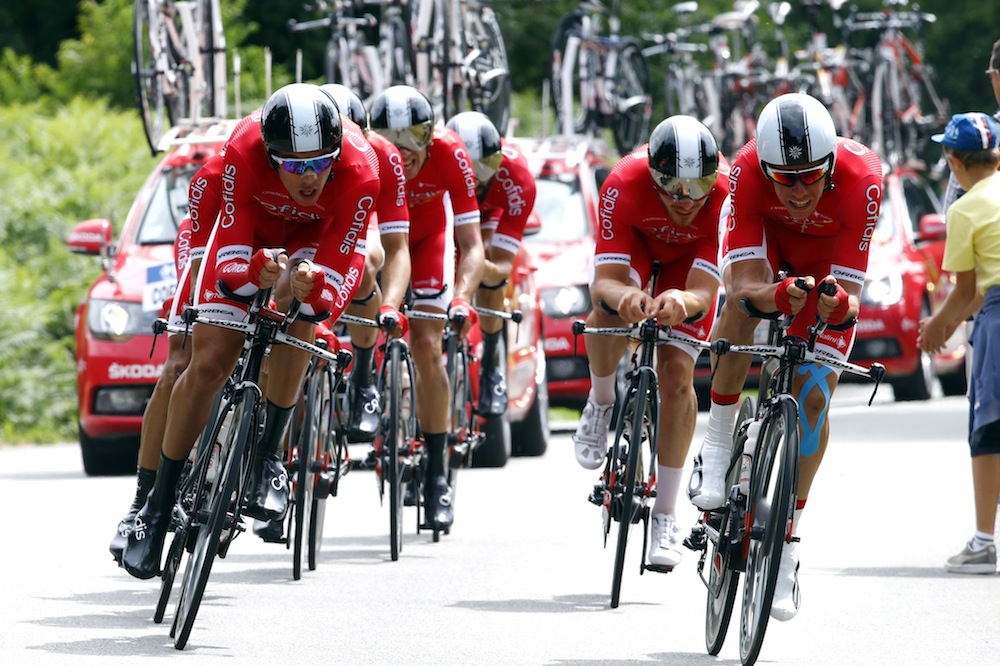
After signing Nacer Bouhanni in the offseason, Cofidis thought they finally had someone to challenge for stage wins. They were wrong.
Bouhanni abandoned the Tour on stage five after a crash and the team's tactics were ruined. They'd built their whole team around leading him out in the sprints and they were forced to rely on chucking someone in the breakaway after that.
Europcar - Rolland good; not world class
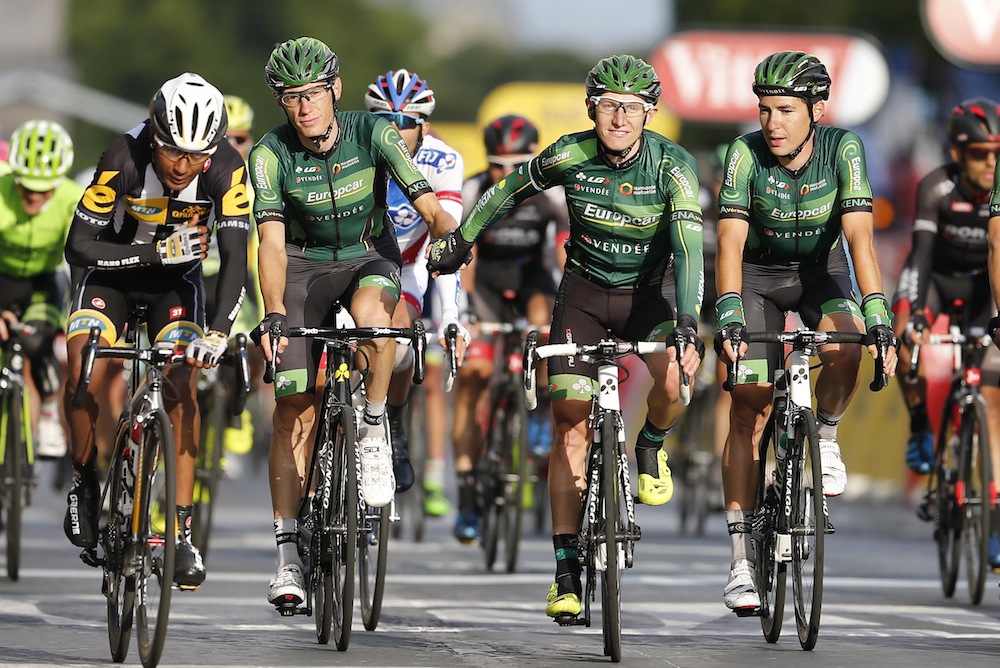
In seven attempts at the Tour de France, Pierre Rolland has finished in the top 10 on three occasions, as well as 11th in 2014. It's a pretty remarkable run for a rider who often enters the Tour without the strongest of supporting casts.
Europcar desperately needed him to do well this year as the team looks to secure a title sponsor for the 2016 season, and Rolland didn't disappoint.
His performances in the Alps were particularly good, finishing second on stage 18, 11th on stage 19 and sixth on Alpe d'Huez. But while he got himself into good positions he rarely looked like he would win a stage.
Cycling fans weren't treated to many of Thomas Voeckler's attacking antics this year, but a new star seems to have been born in the shape of Cyril Gautier who took over the mantle of breakaway attacker.
MTN-Qhubeka - Debut Tour an overwhelming success
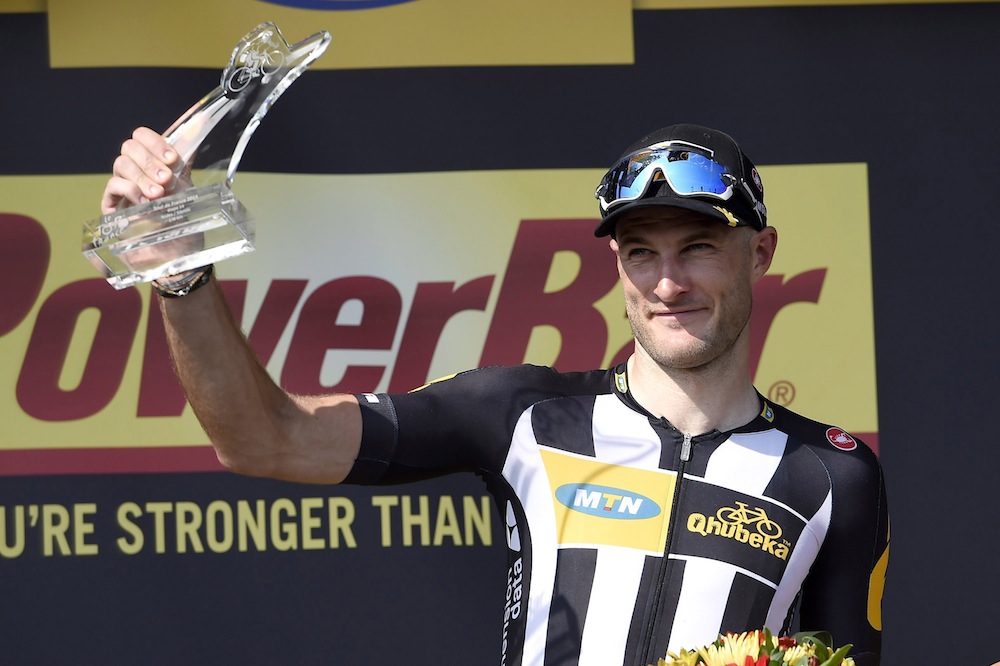
If it hadn't been for all the media build up before the Tour, you wouldn't have guessed that MTN-Qhubeka were a wildcard Pro Continental team based on their Tour performance.
A stage win, days in the polka dot jersey, a handful of top five placings and 13th in the general classification all add up to an unbelieveable Tour for the African team.
You knew they were African, right?
Watch the best bits of the 2015 Tour de France
Stuart Clarke is a News Associates trained journalist who has worked for the likes of the British Olympic Associate, British Rowing and the England and Wales Cricket Board, and of course Cycling Weekly. His work at Cycling Weekly has focused upon professional racing, following the World Tour races and its characters.